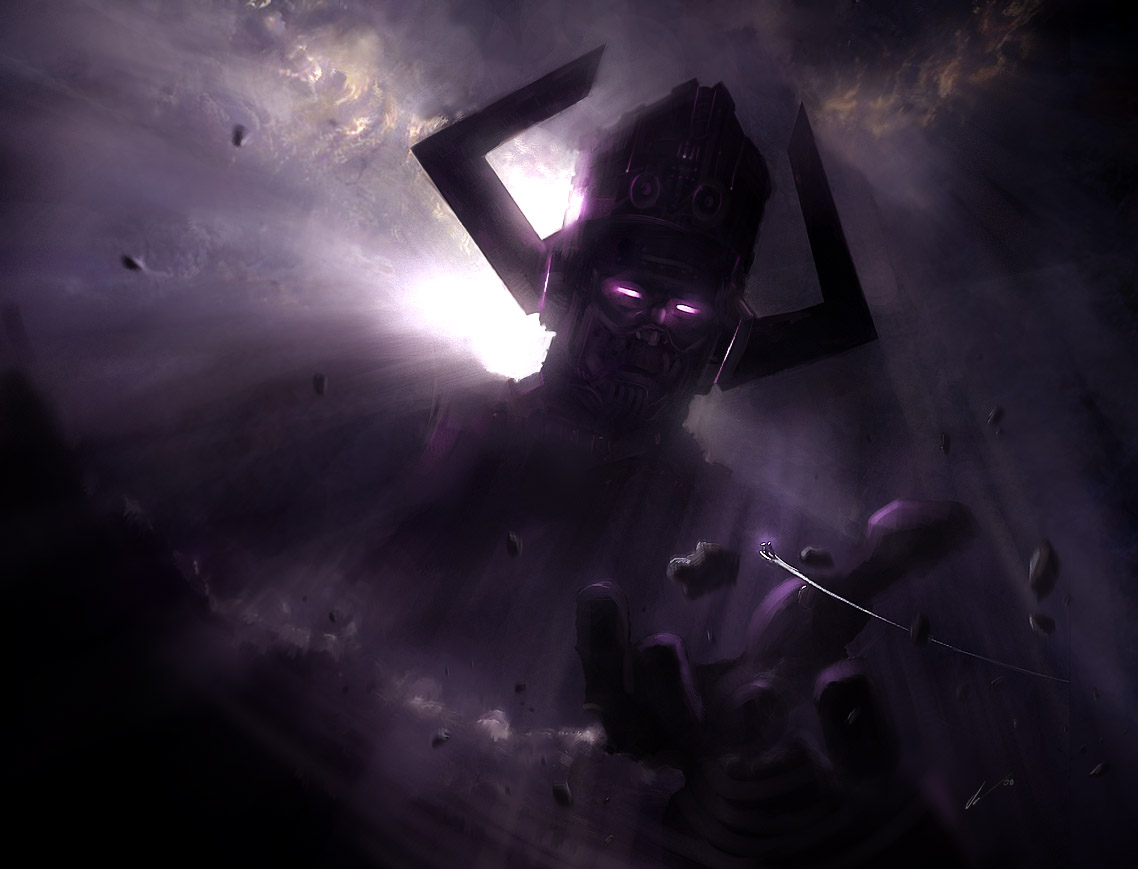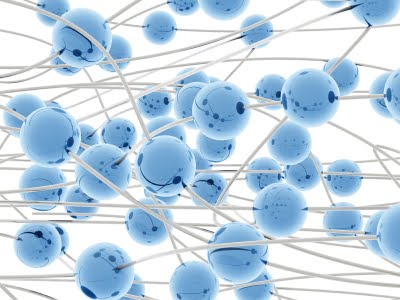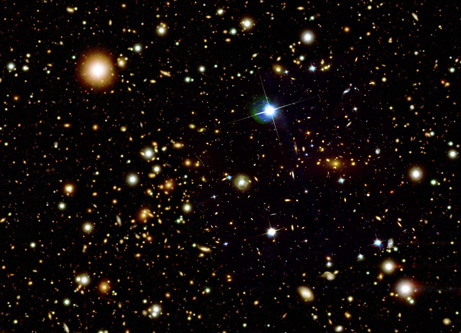Ask Ray | Future battle for resource storage as a substrate for sentience
April 7, 2011 by Ray Kurzweil
Ray,
A disturbing thought occurred to me recently: given that we are on the cusp of personal immortality and the entrance into the age of conscious information (for lack of a better term), it seems that there will eventually become a real resource shortage at the most fundamental level.

Wikipedia | Galactus is a fictional character from Marvel Comics. Galactus was originally from the planet "Taa," in a universe that existed before the Big Bang. When the impending cataclysm killed all life in his universe he didn't die, but was transformed through a bonding with the "Sentience of the Universe." After gestating for billions of years, he emerged in our universe but must consume the energies of entire worlds to survive.
What I’m suggesting (and you’ve probably already considered) is that as individuals make the transition to electronic form, whatever the actual substrate for each individual consciousness is, there will over time be a steady and massive amount of matter required to accommodate each individual’s memory and processing needs.
Just as hard drives in today’s PCs get bigger and bigger, the memory and processing requirements of immortal individuals will over the course of millions and billions of years become so large that each individual will eventually seek to claim entire stellar systems or galaxies to grow their “body” — just to act as the substrate for their ever-growing demand for more physical medium for memory and computation.
This suggests a grand conflict will emerge between ever-larger individuals over the course of future history.
And it also suggests disturbing limits on the possibility of continued existence for beings anything like us in our current form, as our physical environments are subsumed within galactic-scale individuals (an interesting parallel to Galactus’ planet-devouring habits in the Fantastic Four comic book series).
Any thoughts on these rampant speculations?
— Tam Hunt
Also see:
Tam Hunt’s blog: Thought, Spirit, Politik
Science: “Speculating in Precious Computronium,” by Ivan Amato
Tam,
First of all we have a “disturbing limit” on our capacity right now. Our neocortex is only capable of mastering about a billion patterns and is equivalent to about 10 to the 16th power calculations per second. By my calculations we will expand this a billion fold by 2045 through merging with the nonbiological intelligence we are creating. So while we will still be “limited,” we will have vastly expanded our capabilities. There will always be limits but they won’t be very limiting by today’s standards.
That being said, you are nonetheless articulating a key insight, namely that the primary resource we will care about in the late 21st century will be the capacity of our thinking substrate, not energy or water or housing or any of the things people worry about today. It is for that reason that we will then expand away from the Earth to find more matter and energy suitable to convert into “computronium” (the optimal substrate for computation / thinking). Through this process, we will ultimately saturate the Universe with our intelligence.
Best,
Ray
Ray,
I agree entirely with our current resource limits and I really appreciated your discussion on energy in Singularity. My day job is in renewable energy policy and I’ve written a fair amount on peak oil. For a non-energy expert, you really nailed it.

Wikipedia | Computronium is a material hypothesized by Norman Margolus and Tommaso Toffoli of the Massachusetts Institute of Technology to be used as "programmable matter," a substrate for computer modeling of virtually any real object.
That said, I’m curious if you agree with my speculation that we will eventually face a future of a number of extremely large individuals competing over increasingly limited computronium? And will that process eventually lead to just one individual, “God,” emerging victorious?
And what will existence be like for this God who can contemplate nothing more than its components because it will consist of literally everything?
Speculating even further, is this process inevitable? And if so, can we arrive at a proof of God in this manner? Are we right now existing as a simulation within God as an entity that began much like us, and eventually became the entire universe?
Is this process duplicated in a nested manner such that each universe becomes a single being over time and then simulates/creates new universes for mental and emotional stimulation? (“Simulation” and “creation” are synonymous in this context because there is no distinction between simulation and creation — it’s all just reality, whether we call it simulated or not.)
— Tam
Tam,
That’s not the trend we see today. Rather, we see these resources become ever more widely distributed. A kid in Africa today with a smart phone (which are increasingly ubiquitous) has access to more information and cloud computing services (such as Google) than the U.S. President did just 15 years ago.
I believe we will continue to exist as individuals but will also have the ability to merge when we wish to become super individuals. Computers do that today effortlessly.
Best,
Ray
Ray,
 It seems to me that the inevitability, or lack thereof, of the scenario I outline, in which one universal individual emerges from a grand competition for matter in the universe is inevitable only IF the transition from biological to electronic life is made by just one civilization in the entire universe.
It seems to me that the inevitability, or lack thereof, of the scenario I outline, in which one universal individual emerges from a grand competition for matter in the universe is inevitable only IF the transition from biological to electronic life is made by just one civilization in the entire universe.
By transitioning from biological to electronic life, the timespans for life become effectively indefinite, so interstellar space travel loses much of its limitations even if faster than light travel is never discovered.
Under this reasoning, there is no strict “proof of God,” but there may be a conditional proof. We can’t currently know if we live in a universe that sprang in some manner from pure nothingness 13 billion years or so ago (though the anthropic principle suggests that we are not in a first generation universe — far from it), or if it is instead the latest in an eternal cycle of banging and crunching universes. If the latter, then it would seem that this “proof of God” would hold. But if the former, maybe we are just now kicking off the process of becoming God.
These are certainly not issues that should worry us too much today, but interesting to contemplate nonetheless.
Thanks!
Tam